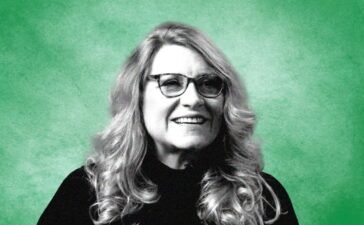My husband has named me as the transfer-on-death beneficiary of his bank and brokerage accounts. We are childless, do not own real estate and have no other assets of value. Nor do we have loans. He believes that a will, therefore, is unnecessary. My concern is that there would be some involvement by the state that would cost me, the surviving spouse, in dollars, time or inconvenience if he dies without a will. I don’t want the government involved in my affairs.
Wife in Arizona
Dear Wife,
Not having a will means the state will intervene in your affairs, however modest they are.
You are one of the roughly one-third of Americans who don’t have a will — and you are among the 40% of people who believe you don’t have enough assets to make a will. That’s according to a 2024 Caring.com survey. You are correct in that your husband’s accounts that have you listed as the beneficiary will pass to you and avoid probate upon his death. Let’s assume you have done the same with any accounts in your name. But have you thought of everything?
What will happen to any vehicles that are titled solely in your name or your husband’s? What will happen if you both pass away at the same time, or one of you soon after the other? And what will happen after you die, assuming your husband predeceases you? In any of those cases, the government will intervene in your affairs — that is, your estate will go through probate, a public accounting and distribution of your assets.
Let’s say that when both you and your husband pass away, your estate is worth $100,000 (to pick a round figure). What do you want to happen with that money? Would you prefer that it go to the state of Arizona? Or do you think it would be a better legacy to leave it to a cause close to your heart? A local animal shelter that rescues stray dogs and tries to find them a forever home, perhaps, or a cancer charity, orn organization to help the elderly?
What about your personal belongings? Would you like to bequeath some mementos to friends, neighbors or extended family members? “Only in the unlikely circumstances that you die without a will and are not survived by any family members will your estate assets escheat to the state of Arizona,” according to the Law Offices of William D. Black.
An advance healthcare directive informs your doctors what action you want them to take if you are unable to make those decisions yourself. You may wish to list your husband as your healthcare proxy, and vice versa. Serious medical issues can put pressure on a marriage, as this couple experienced. Do you wish to be resuscitated if your breathing or heart stops? Also, ensure you have a successor on both your power of attorney and healthcare directive.
The more you do now, the less the government will have a say in your final affairs.
The Moneyist regrets he cannot reply to letters individually.
More columns from Quentin Fottrell:
Check out The Moneyist’s private Facebook group, where members help answer life’s thorniest money issues. Post your questions, or weigh in on the latest Moneyist columns.
By emailing your questions to The Moneyist or posting your dilemmas on The Moneyist Facebook group, you agree to have them published anonymously on MarketWatch.
By submitting your story to Dow Jones & Co., the publisher of MarketWatch, you understand and agree that we may use your story, or versions of it, in all media and platforms, including via third parties.







